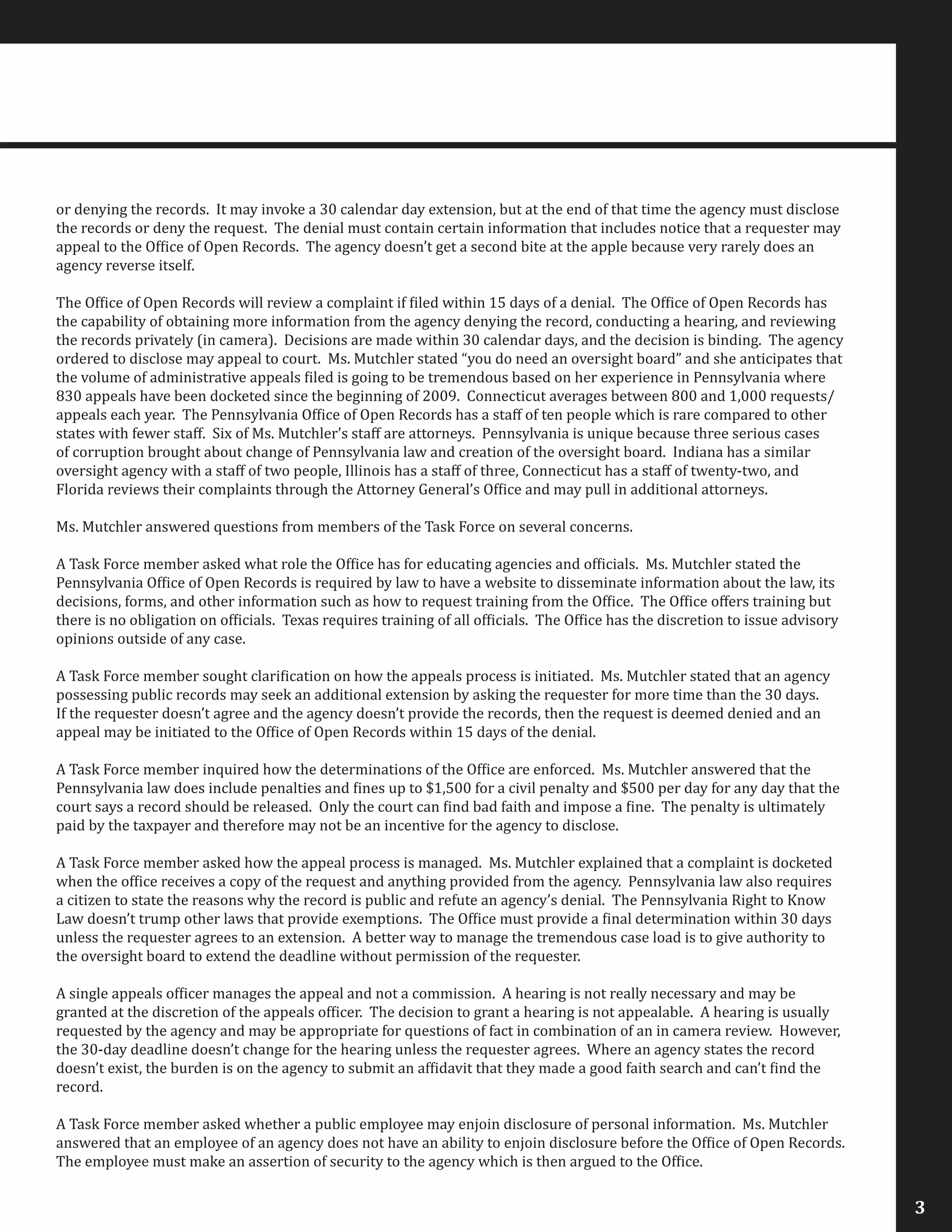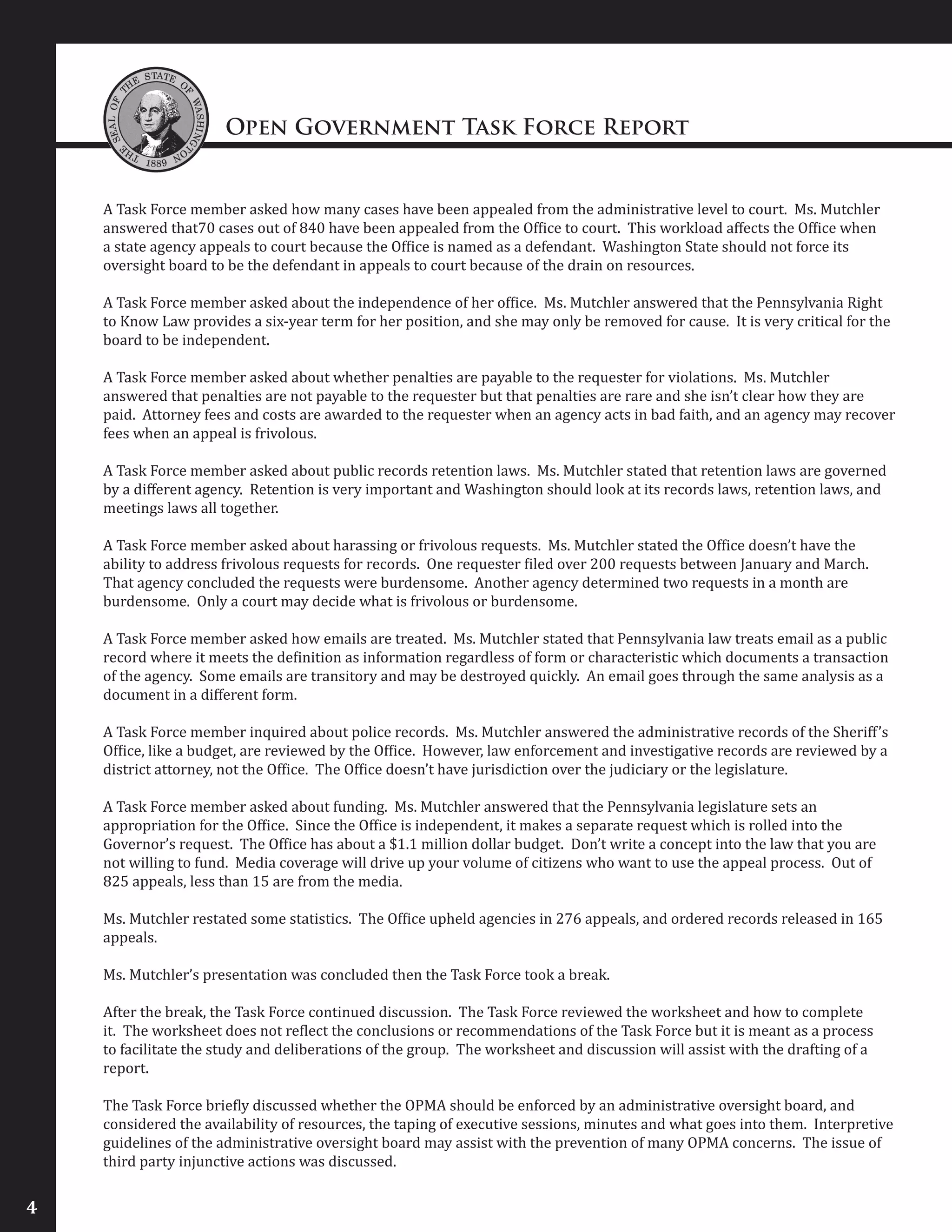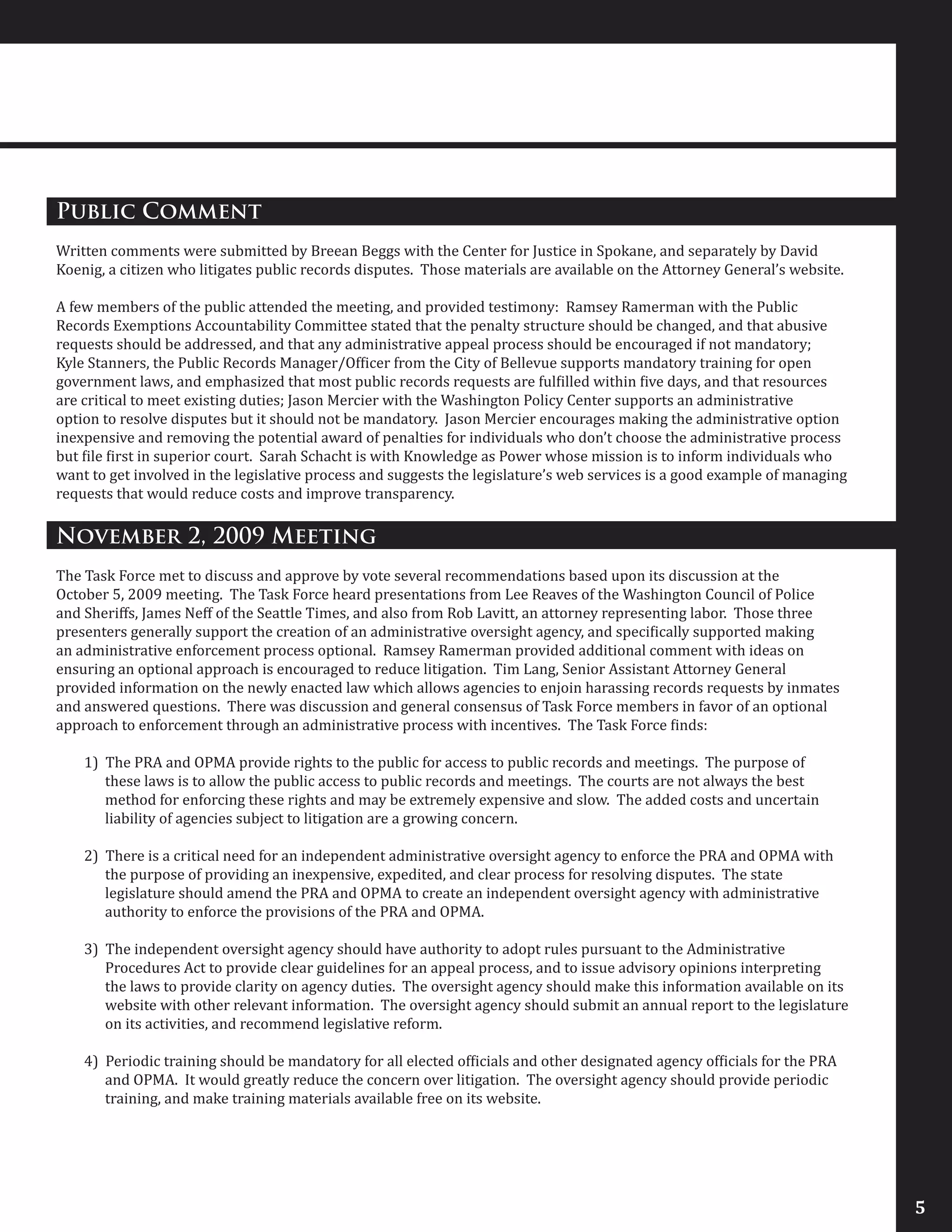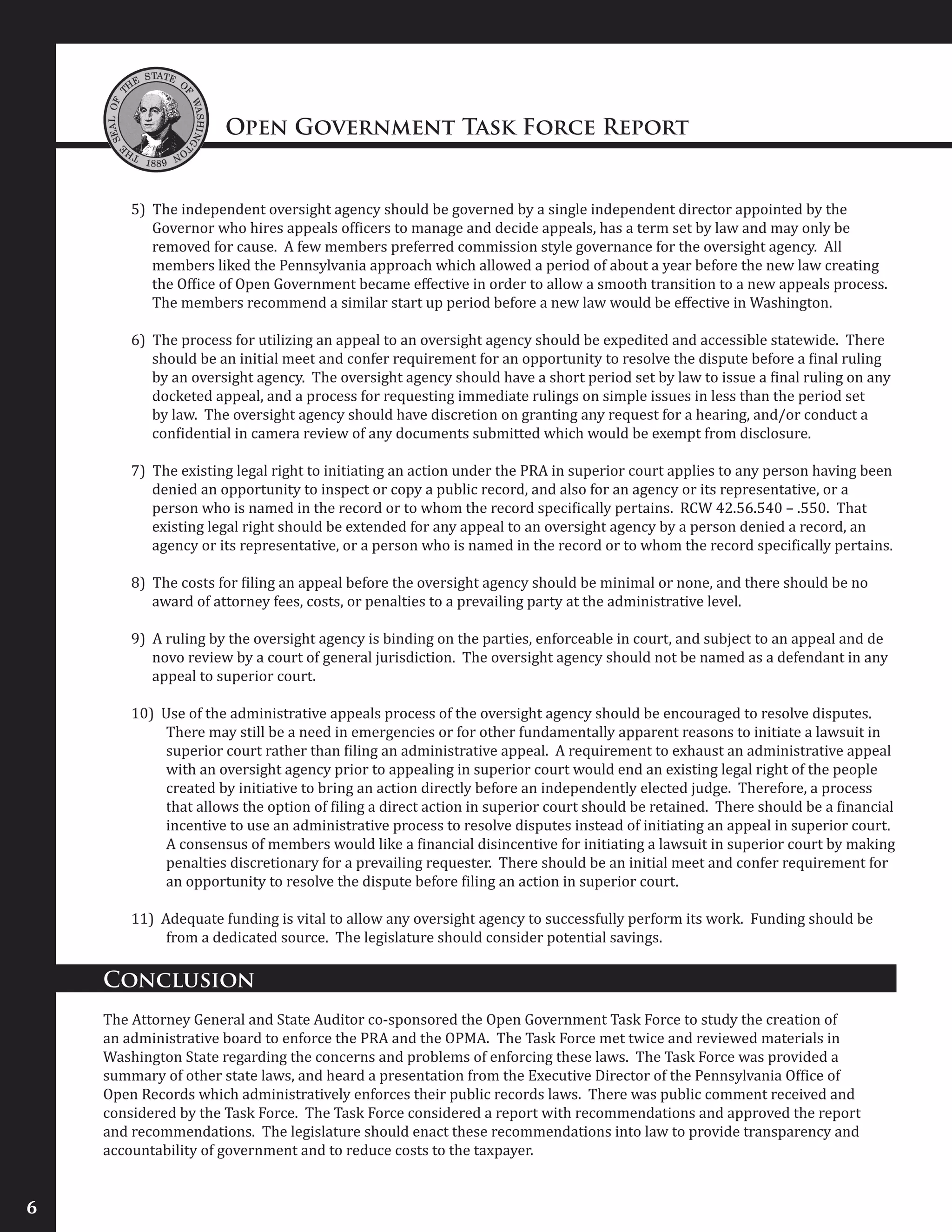This document summarizes the proceedings of the Open Government Task Force, which was convened to study and make recommendations about creating an administrative board to rule on complaints regarding Washington state's Public Records Act and Open Public Meetings Act. The task force heard a presentation from the director of Pennsylvania's Office of Open Records, which resolves records complaints administratively. Overall, the task force supported creating an optional administrative process to resolve disputes as an alternative to litigation, with incentives to encourage its use.
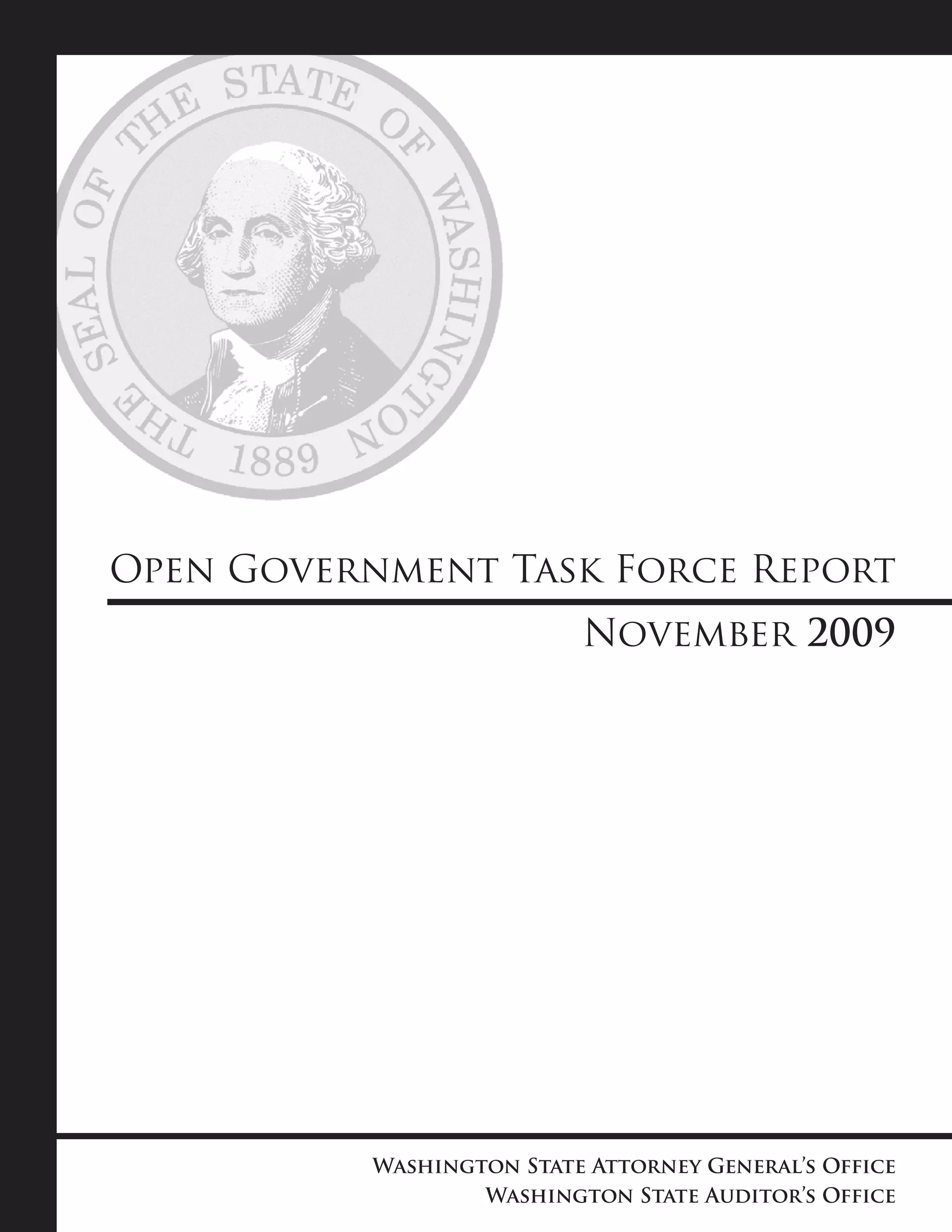

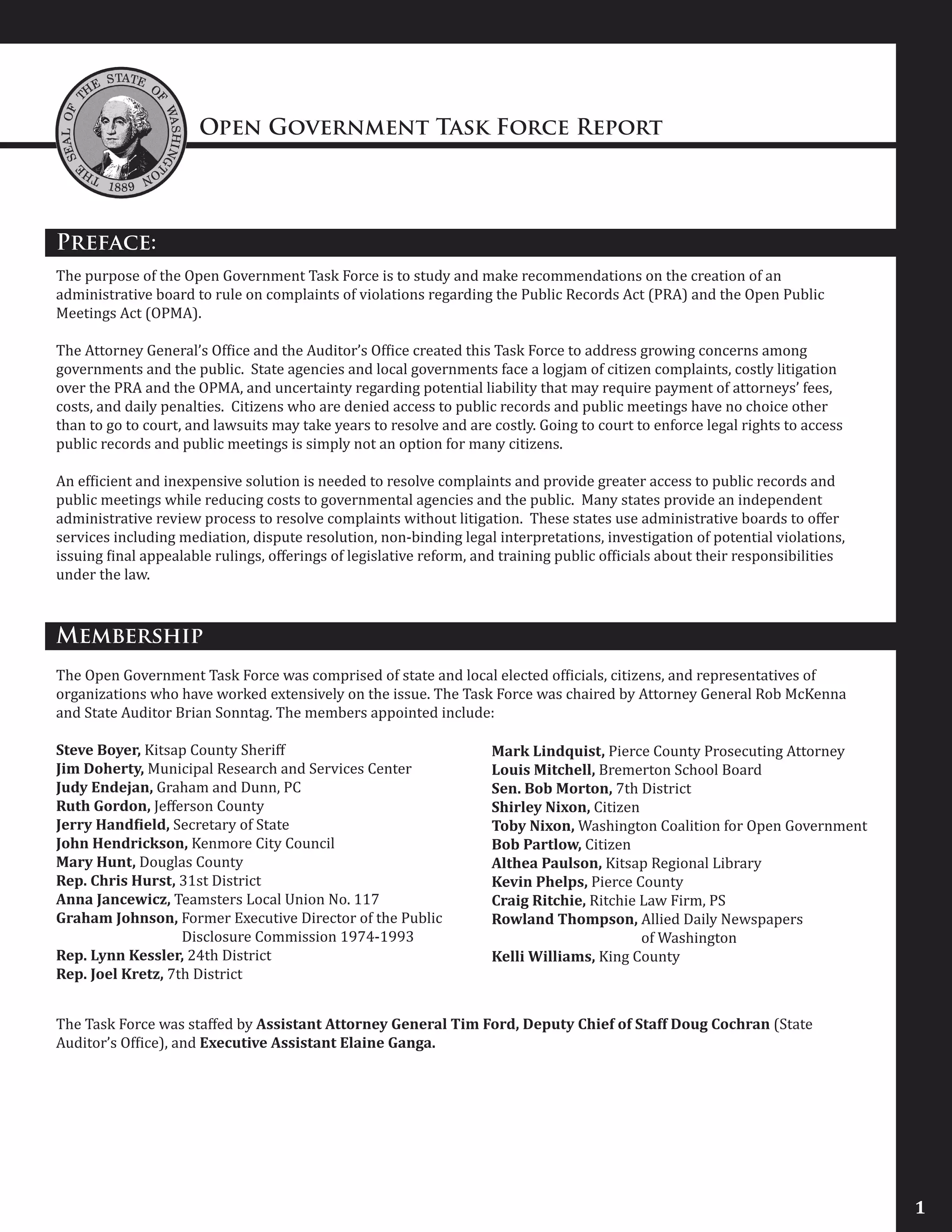
![Open Government Task Force Report
2
Materials
The Task Force was provided materials for their review in advance of the meeting available on the Attorney General’s
website1
. Materials include but are not limited to an overview and purpose of the PRA and OPMA, a summary of select
cases, Auditor’s Report of OPMA concerns, 50 state survey and summary of enforcement processes, and written public
comment.
October 5, 2009 Meeting
The Task Force held its first meeting on October 5, 2009 in the Senate Rules Room of the Legislative Building in
Olympia. TVW2
recorded and televised the meeting. The meeting was opened by statements from Brian Sonntag and
Rob McKenna to encourage the members to study and seek an effective way to access information without having to
initiate litigation in court.
A brief overview of the PRA, the OPMA, their enforcement mechanism, and relevant cases were provided by Tim
Ford. The Yousoufian case was of particular concern given its length of time over ten years and repeated appeals to
the Washington State Supreme Court. Of particular note in the Yousoufian case is Justice James Johnson’s quote at the
September 22, 2009 hearing: “This has gone on and on in this case through the courts, my perspective is the courts are
not solving the problem.”
Discussion followed regarding concerns. Bob Partlow asked how many lawsuits are filed, and Brian Sonntag noted that
there is no tracking mechanism but a lawsuit is the only recourse or a dispute is never resolved. Toby Nixon clarified
that the lack of training leads to noncompliance, and that free of charge online training provided by the Attorney
General’s Office would make a huge difference. Additionally, Toby Nixon concludes an administrative [appeals] process
could be used to foster training. Louis Mitchell would like to know which administrative processes of other states are
more efficient, an appeal through a body governed by a commission or through an Attorney General’s Office. Anna
Jancewicz commented that offender requests have nearly doubled from 2007 to 2008 and that agency employees are
affected by records requests. Training should also be for employees that are affected by these requests especially if they
are harassing. Judy Endejan states there is a real need for something other than a lawsuit to compel compliance with
the PRA. Citizens obtaining redacted records may still not be able to determine whether the actions of government
were right. A different enforcement mechanism would benefit both parties because litigation is extremely expensive.
However, it needs to have the confidence of the citizens that it is not just another agency protecting government.
Graham Johnson indicated that the Public Disclosure Commission (PDC) is effective because it has enforcement
authority to adopt rules under the Administrative Procedures Act. Advisory opinions, rules of general applicability,
and interpretive statements or guidelines will eliminate confusion so that every issue doesn’t have to be litigated.
John Hendrickson noted that it isn’t easy to find authority for guidance on disclosure and that even an elected council
member may encounter difficulties to review public records in order to perform their official duties. Althea Paulson
clarified that the Attorney General’s Office has a lot of information on its website with general guidance and the model
rules.
The Task Force heard a telephone presentation by Terry Mutchler, Executive Director of the Pennsylvania Office of Open
Records with authority to oversee the Pennsylvania Right to Know Law. Her agency hears administrative complaints
over denials of public records, not public meetings. They try to take a middle of the road approach in enforcing the law,
but if there is a close call her agency interprets the law in favor of openness. Ms. Mutchler stated that it is critical to
have an administrative oversight agency if a state is to be successful in ensuring open and accountable government.
Ms. Mutchler introduced the basics of the new Pennsylvania Right to Know Law. If a Pennsylvania citizen files a Right to
Know request with a government agency, the body has five business days to initially respond by disclosing the records
1. http://www.atg.wa.gov/OpenGovernment/TaskForce/Materials.aspx.
2. http://www.tvw.org/media/mediaplayer.cfm?evid=2009100066A&TYPE=V&CFID=9234089&CFTOKEN=2c4d2523
5b5c4ae3-2A875757-3048-349E-4E3A0E9474FD29FD&bhcp=1](https://image.slidesharecdn.com/9e2bdf21-da7c-49bf-9743-a8cf6ebbd9f2-151021024245-lva1-app6892/75/OG_Task_Force_Report-1-4-2048.jpg)
